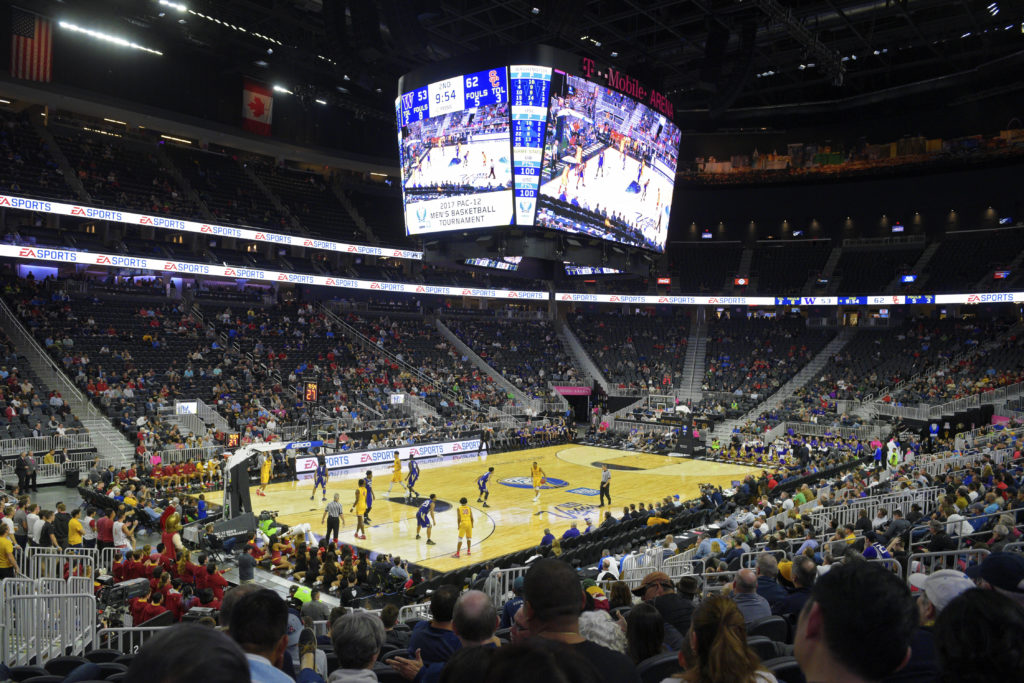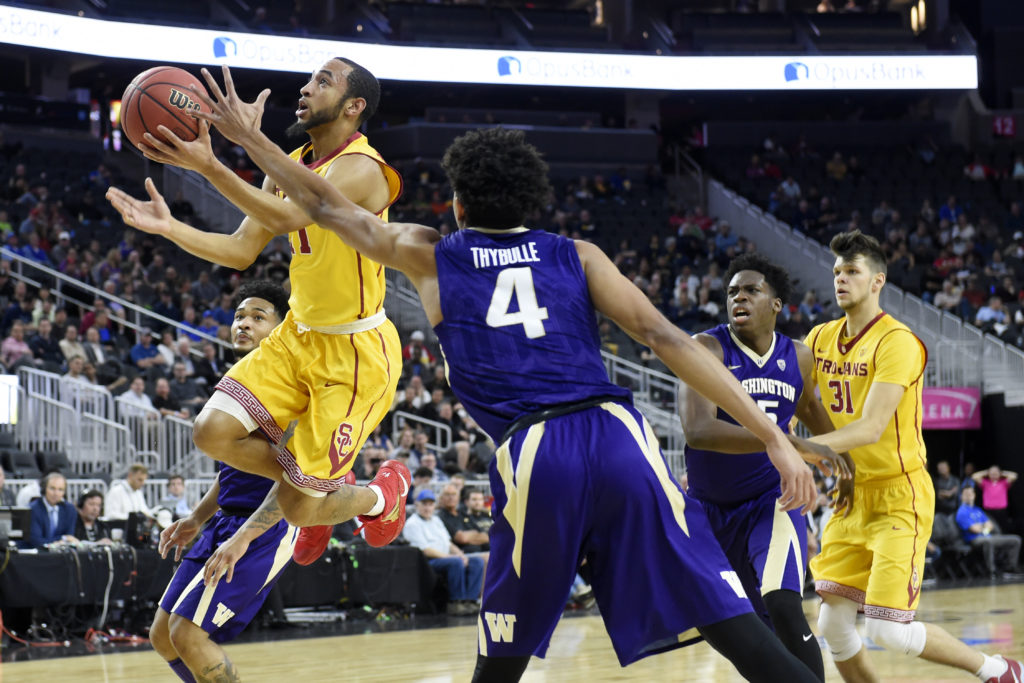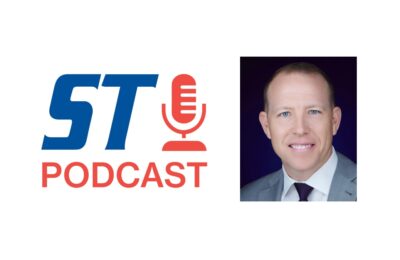Following the U.S. Supreme Court ruling that would allow all states to offer legalized sports wagering, the NCAA has announced it is temporarily lifting its longtime ban on staging championship events in states that allow betting on single games. The NCAA Board of Governors decided to lift the ban to “ensure championship location continuity by temporarily allowing NCAA championship events to occur in states that offer sports wagering,” according to a statement, but said it will continue to review the policy in the future.
An NCAA policy that prohibits sports gambling sponsorships and advertising at championships and Football Bowl Subdivision bowls, however, will remain in place.
The hosting ban has long prevented cities in Nevada from staging championships in NCAA sports, even though individual collegiate conferences have been allowed to host their own conference championships in the state if they chose. The result was that four collegiate conferences (Mountain West, Pac-12, West Coast, Western Athletic) held their basketball championships in Las Vegas last year and another (Big Sky) held a championship in Reno, even though the cities were not permitted to host rounds of the NCAA Basketball Tournament.
In addition to lifting the championship ban, the NCAA in its first extended comments since the ruling announced that it will continue to support a federal model that addresses legalized sports gambling. “Our highest priorities in any conversation about sports wagering are maintaining the integrity of competition and student-athlete well-being,” NCAA President Mark Emmert said. “Sports wagering can adversely impact student-athletes and undermine the games they play. We are committed to ensuring that laws and regulations promote a safe and fair environment for the nearly half a million students who play college athletics. While we recognize the critical role of state governments, strong federal standards are necessary to safeguard the integrity of college sports and the athletes who play these games at all levels.”
From an event-hosting perspective, the Supreme Court ruling and now the NCAA decision could have significant impact on new events in Las Vegas and Reno. Despite the ban, Las Vegas had continually bid to host NCAA championship events, said Pat Christenson, president of Las Vegas Events, which bids on championship events for the city. During the last round of bidding for events through 2021–2022, Las Vegas submitted proposals to host the NCAA wrestling and hockey championships at T-Mobile Arena on the Las Vegas Strip. It also submitted bids to host rounds of the NCAA Men’s Basketball Tournament at T-Mobile or Thomas & Mack Center.
At the time, Christenson said, the NCAA advised the city that it would have to wait for the pending Supreme Court ruling before its bids could be considered. But the game has now changed. “It’s another set of events that we’ve never had the opportunity to compete for,” he said.
In Reno, there is equal hope that the new decision opens up new events that city has traditionally been denied the chance to host. “We are super hopeful that now we can throw our name in the hat on all these things,” said Shelli Fine, director of sports development for the Reno-Sparks Convention & Visitors Authority.
Fine noted that the University of Nevada has been investing in recent years in its campus venues, including its football stadium and training facility. There have also been serious discussions about adding 200,000 square feet to the city’s convention center, which currently has 500,000 square feet, possibly putting volleyball championships in play, Fine said. “Those are all good things that are in the works and could help us when we start to seriously look at some of these championship bids,” she said.
Christensen noted that unless the NCAA had lifted its hosting ban, it would soon face a conflict in states that choose to move forward with sports wagering. NCAA championships for most sports have already been awarded through 2022, although several states that have been awarded those events may have sports wagering in place by the time they host.
































 Copyright © 2025 by Northstar Travel Media LLC. All Rights Reserved. 301 Route 17 N, Suite 1150, Rutherford, NJ 07070 USA | Telephone: (201) 902-2000
Copyright © 2025 by Northstar Travel Media LLC. All Rights Reserved. 301 Route 17 N, Suite 1150, Rutherford, NJ 07070 USA | Telephone: (201) 902-2000